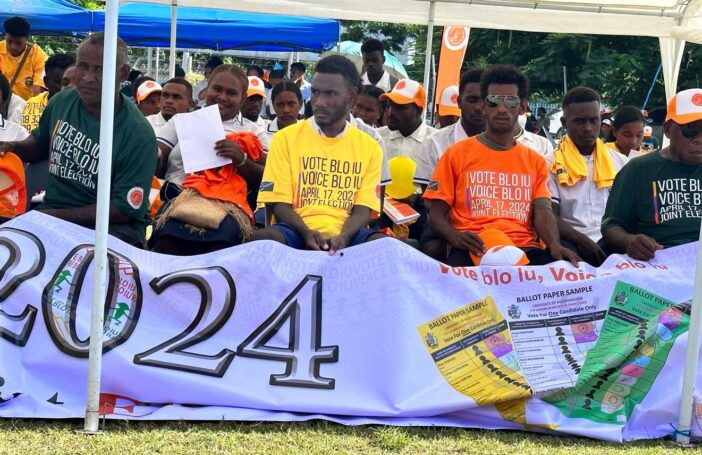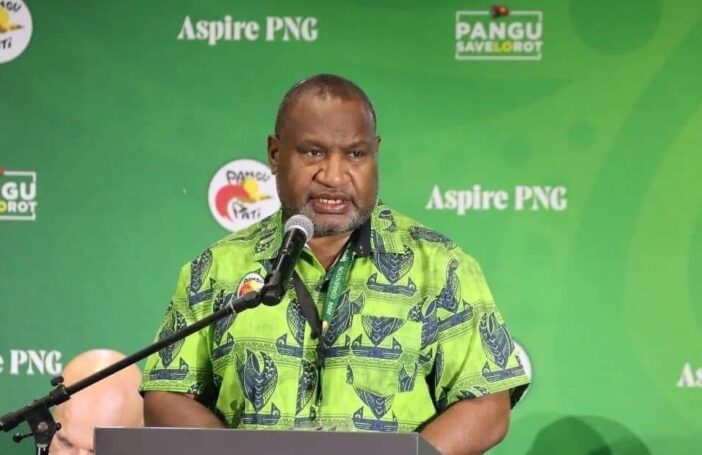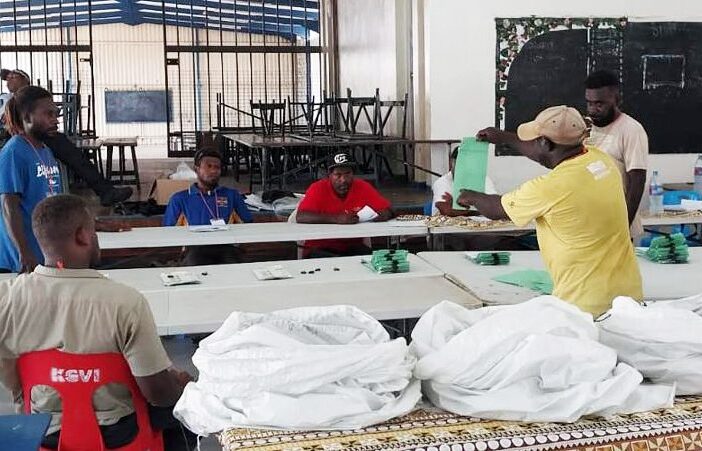Ministerial positions are a crucial tool in Papua New Guinea’s clientelist politics. For parliamentarians seeking re-election, being a minister can provide access to resources that could be used to gather support from voters, as well as grant a level of local prestige and national influence. And from the perspective of prime ministers and sitting governments, ministerial appointments are used to reward support from members of parliament (MPs) and maintain delicately balanced coalitions of independents and multiple parties.
Which begs the question – how much of an advantage is it to be a minister? And does that advantage vary over elections, seats and types of ministries? Thanks to the unusually rich data available on elections and ministers in PNG, I’m able to evaluate these questions using a difference-in-difference event study approach in a new Development Policy Centre discussion paper. Here, I highlight three key findings.
First, in open electorates, being a minister initially increases the likelihood that an MP is re-elected – but not for long.
I find that being a minister increases the likelihood that an MP in an open electorate is re-elected by 14.4 percentage points, in the election immediately after they become a minister. This ministerial incumbency effect is pretty large, considering that just 45% of incumbent parliamentarians re-entered parliament on average between 1977 and 2017 in PNG. But it’s also short-lived. While ministers receive an electoral advantage in the election immediately after being appointed, the effect dissipates by the next (second) election after being made a minister – even if the MP continues to hold ministerial office.
This is surprising in a sense; one might be tempted to assume that being able to channel resources to supporters for longer and build up a reputation would yield electoral dividends, especially within a clientelist political environment. But it’s also possible that supporters’ expectations increase and therefore cannot be fully met as an MP is a minister for longer, and that reputational benefits may also be subject to these kinds of diminishing returns.
Being in the public eye for longer might also invite greater scrutiny of an MP’s performance as a minister and parliamentarian more broadly, which could lead voters to change their voting behaviour and potentially remove the MP from office. Finally, it’s also possible that being a minister draws an MP’s attention towards national politics and policy issues at the expense of engaging and delivering action on local issues for their electorate, which in a clientelist political environment could materially affect their chances of being re-elected.
Second, in provincial seats, being a minister doesn’t appear to provide an electoral advantage for incumbents standing for re-election.
In contrast to open electorates, being a minister has no statistically significant effect on incumbents’ chances of being re-elected in provincial seats.
Why is this the case? Part of the answer is likely to be a law in PNG that requires parliamentarians in provincial seats to vacate the office of the governor – an automatic entitlement of winning an election in a provincial seat – if they are made a minister. Governors already have fairly influential roles at the provincial level, including chairing the Provincial Assembly (the provincial level elected government) and until 2014 sitting on influential local government planning and budget committees. So it could be that the cost of losing these benefits and the “governor” title isn’t outweighed by any resource or reputational benefits accrued by being a minister.
Third, the type of ministry one holds matters – junior ministries are less useful (and in the long-run worse) for parliamentarians’ re-election prospects.
Not all ministries are created equal. Being the Prime Minister is, for instance, intuitively much more valuable in terms of resources and reputation than holding any other ministerial position. It might also be helpful to be the minister of a “central agency” – which could provide greater influence in government policymaking and implementation – or to hold an “economic” ministerial portfolio which might offer greater rent-seeking opportunities.
Using the list of central agencies and economic portfolios usefully compiled by Colin Filer and coauthors, I find that being a junior minister might make no difference for re-election prospects compared to being a backbencher – at least for the first election. But it might actually be worse for MPs’ re-election prospects to stay on as a junior minister if they don’t later “graduate” to a more senior ministerial position. Specifically, junior ministers are about 25-30 percentage points less likely to be re-elected after holding a junior portfolio for two terms, compared to MPs who aren’t ministers at all.
Taken together, these results confirm the importance of ministerial positions both at the micro and macro political levels in PNG – as has long been known by both PNG politicians and analysts. But it’s also important to acknowledge that ministerial incumbency effects differ significantly across elections, seats and types of ministries, and may continue to evolve over time. The “advantages” associated with being a minister should therefore not be taken for granted.
Download the discussion paper.
Alyssa Leng will discuss her findings in Session 2A on the opening day of the PNG Update to be held on 21-22 August at the University of Papua New Guinea’s Waigani campus. Organised by the UPNG’s School of Business and Public Policy and ANU’s Development Policy Centre, the annual event is free to attend. No registration prior to the event is required. View the full event details including the livestream link.




